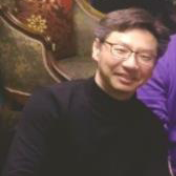
Yoon Sang Kim
Work place: BioComputing Lab, Department of Computer Science and Engineering, Korea University of Technology and Education (KOREATECH), Cheonan 31253, Republic of Korea
E-mail: yoonsang@koreatech.ac.kr
Website: https://orcid.org/0000-0002-0416-7938
Research Interests:
Biography
Yoon Sang Kim is a Professor of Computer Engineering. He received the Ph.D. degree in Electrical Engineering from Sungkyunkwan University, South Korea, in 1999. He worked as a researcher at the Human Robot Research Center of the Korea Institute of Science and Technology (KIST) in 2000. He also served as a Principal Research Engineer at the Samsung Advanced Institute of Technology in. From 2014 to 2016, he was an Adjunct Associate Professor in the Department of Electrical Engineering at UW (University of Washington). Since 2005, he has been a Professor in the Department of Computer Engineering at Korea University of Technology and Education (KOREATECH). His research interests include augmented reality, virtual reality, human computer interaction, and bio computing.
Author Articles
VR IGLOOTM: A VR-Based Teaching-Learning Model for Distance Education
By Yu Jin Choi Hae Chan Na Yoon Sang Kim
DOI: https://doi.org/10.5815/ijmecs.2025.02.01, Pub. Date: 8 Apr. 2025
Traditional distance learning has been widely adopted for its capacity to provide educational access to a broad and diverse audience, overcoming spatial and temporal limitations. However, it needs to deliver the same immersion and learning effectiveness as face-to-face instruction, particularly in courses requiring hands-on practice, where these limitations become more pronounced. To address this, virtual reality (VR)-based distance learning has gained attention as a potential solution. Previous studies have confirmed that VR-enhanced distance learning can improve educational outcomes; however, a standardized teaching-learning model designed explicitly for VR-based distance learning has yet to be established. Consequently, instructors have often relied on conventional models, leading to variability in instructional quality. This paper proposes the VR IGLOO model, a structured VR-based teaching-learning framework tailored for distance education. For this purpose, analysis of the conventional studies and focus group interview (FGI) of the expert group were conducted. And the validity of the proposed model was verified through Delphi validation.
[...] Read more.Other Articles
Subscribe to receive issue release notifications and newsletters from MECS Press journals